
Theme: Innovative Learning-Scapes: e-Scapes, play-Scapes & more
Aim: to examine the impacts that social and mobile media and networks are having on learning environments in higher education
Dates: May 31 to June 02, 2014 (Sat-Mon)
Venue & Host University: Anchorage; University of Alaska Anchorage (tentative)
CLICK HERE TO SUBMIT YOUR CONFERENCE PROPOSAL
[tabs]
[tab title=”Overview”]
Overview
Following its immensely successful 2013 International HETL Conference at the University of Central Florida in Orlando, the International Higher Education Teaching and Learning Association (HETL) invites you to attend the 2014 International HETL Conference, to be held in Anchorage, Alaska, USA, in partnership with the University of Alaska Anchorage.

Anchorage provides a great backdrop for the 2014 International HETL Conference. Anchorage is a unique destination with once-in-a-lifetime experiences, a place where your sense of adventure can come to play. In Anchorage, you will not only have the opprotunity to explore new developments in learning-scapes but you will also be able to explore natural landscapes like glaciers and mountain vistas, as well as exotic wildlife. In Anchorage, you will enjoy metropolitan amenities, excellent museums, and a thriving cultural life with frontier flair. The June climate in Anchorage is ideal, offering sunny days with average temperatures of 62F/16C. Tap into your sense of adventure! See Visit Anchorage for more information about Anchorage.
About the Theme
In Being a University (2011, p143), Ronald Barnett talks about the emerging university of the future as an ecological university, where the ecological university is not only concerned with the natural environment but is concerned about “…a much wider ambit, embracing the personal, social, cultural, institutional and technological environments and knowledge of those environments; in short, the world in its fullest senses.” The ecological university thus endeavors to cultivate those interconnections through meaningful and diverse ways of learning and inquiry.

Aurora ER 2013 Roy Neese
A learning-scape, therefore, may be defined as a conceptual construct that shapes our perceptions of our learning environments. A learning-scape may be viewed as a mosaic of learning environments (i.e., a holistic learning ecosystem) interconnected and interacting at all levels. Personal, cultural, institutional and technological environments can have an enormous impact on learning-scapes because all these environments are intertwined and symbiotic to various degrees. Thus, we need to remind ourselves that curiosity, creativity, and meaningful dialogue and interactions are vitally important because they form the basis for and the context of our humanity and human learning. We need to remind ourselves that appropriate design of learning-scapes matters. (Blessinger, 2013)
What elements make for effective learning-scapes? For instance, how do we use technology to transform learning without becoming overpowered by the technology? Just as a mountain can seem to overshadow the smaller yet important places around it, technology can sometimes make us feel overwhelmed by its power and enormity. This conference seeks to advance the notion of higher education as an interconnected learning ecosystem and it aims to explore how all the diverse elements of this ecosystem can contribute in creating more dynamic and flourishing learning-scapes.

More specifically, the conference aims to review the impacts that digital, social and mobile media and networks are having on learning environments in higher education. Reports on new forms and approaches to teaching and learning are specifically solicited and presentations on developments and research in higher education generally are welcome.
Participants will be from the gamut of academic disciplines across the arts, sciences, and professions, as well as from other administrative and staff functions delivering and supporting new technologies and approaches to learning. As with every HETL conference, we support participation from around the world.
It’s More Affordable than You May Think
Anchorage, Alaska is an ideal location on the dynamic Pacific rim. The conference organizing committee has worked hard to make the total cost of attending the conference affordable. Airfare to Anchorage is more reasonably priced than we anticipated. For example, we discovered by checking Kayak.com that roundtrip airfare from New York to Anchorage around the time of the conference might be about $350, from London $1000, and Tokyo $1100. We anticipate that hundreds of rooms at the University of Alaska will be available for well under $100 as well as rooms at select hotels in Anchorage. Please submit your presentation proposal before the July 26, 2013 deadline or simply join us as a conference attendee by registering. No proposal is required if you are attending but not presenting.
Anchorage, a very ecologically friendly city and high quality of living, is known for its beautiful landscapes and thriving cultural life. This makes for an ideal backdrop to participate in presenations and workshops by leading scholars and faculty, distinguished international speakers, as well as informal networking and dialogue. Please join us!
We look forward to seeing you in Anchorage!
[clear]
[/tab]
[tab title=”Organizers”]
About HETL
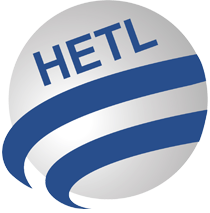 The International Higher Education Teaching and Learning Association (referred to as HETL) is a certified non-profit organization in the State of New York (USA) with headquarters in New York City. HETL’s scope is international with a global membership. HETL works with and supports individual educators, as well as all types of educational institutions, associations, centers, and other groups interested in improving teaching and learning in higher education.
The International Higher Education Teaching and Learning Association (referred to as HETL) is a certified non-profit organization in the State of New York (USA) with headquarters in New York City. HETL’s scope is international with a global membership. HETL works with and supports individual educators, as well as all types of educational institutions, associations, centers, and other groups interested in improving teaching and learning in higher education.
The long-term vision of HETL is to improve educational outcomes in higher education by creating new knowledge and advancing the scholarship and practice of teaching and learning.
To bring that vision to reality, the present mission of HETL is to develop a global community of higher education professionals who come together to share their knowledge and expertise in teaching and learning.
To effectively fulfill that mission, HETL adheres to the values of academic integrity, collegiality, and diversity. As such, HETL supports academic and pedagogical pluralism as well as practices that promote sustainable learning and peace.
About the University of Alaska Anchorage

The University of Alaska Anchorage (UAA) is a forward-thinking cross-trainer for life and learning, sparking transformative personal and academic opportunities and adventures in an incomparable environment that embraces both urban and wild.
UAA’s unique geographical location and abundant natural resources attract faculty and students with diverse backgrounds and experiences. UAA challenges faculty and students to think differently and to both innovate and adapt to leverage the environment in a sustainable and symbiotic fashion.
Inspired by some of the planet’s most diverse natural landscapes, faculty and students are encouraged to explore imaginative ideas and practical solutions to local and global challenges. UAA is a leading force in higher education, making a difference in new technologies, new jobs and new hope for the future.
Organizing Committee

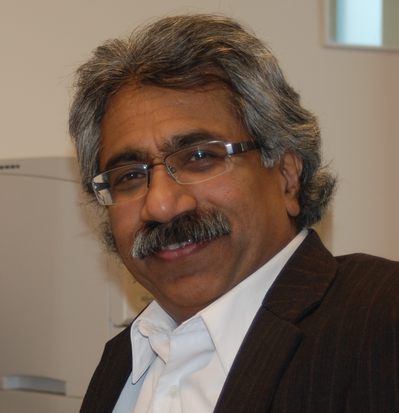
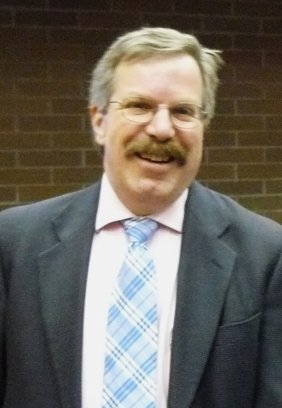
Randy Magen, Program Co-chair, USA, is Professor, School of Social Work, University of Alaska Anchorage. Randy’s teaches in the areas of Social Work Practice, Research, and Field Education.
Special Delegates
Keynote Panel


Anya Eskildsen, Denmark, is Managing Director (CEO) at Niels Brock Copenhagen Business College, Denmark, member of the Council for Growth in Denmark (Danmarks Vækstråd), Ministers Appointed Member of Council for Secondary Supplementary Courses (GSK), board member in TRYGHEDSGRUPPEN s.m.b.a., and member of the board in TRYG.

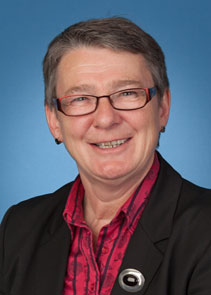
Special Guest Speaker
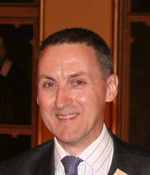
Track Chairs
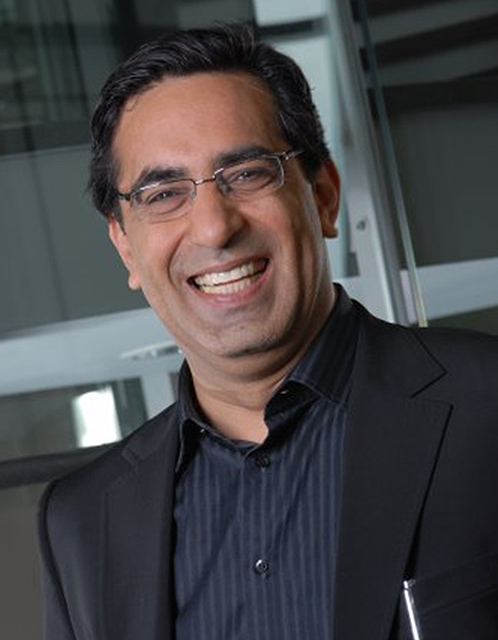

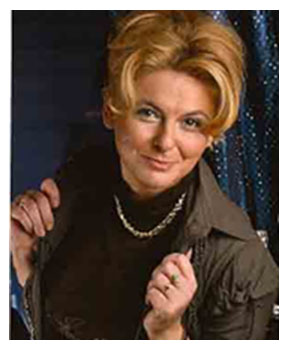
Advisory Committee
Arputharaj Devaraj, India
Melody Bowdon, USA
Donizetti Louro, Brazil
Mandla Makhanya, South Africa
Linda B. Nilson, USA
Krassie Petrova, New Zealand
Denise Stockley, Canada
Andras Szucs, UK
Barrie Todhunter, Australia
Benno Volk, Switzerland
Charles Wankel, USA
[clear]
[/tab]
[tab title=”Tracks”]
This conference offers you the latest developments in digital and social media as well as theoretical models to explain and predict the emerging patterns of digital, social, and mobile media for educational and learning applications.
Additional conference tracks may be developed based on proposal submissions so please submit your proposal even if it does not align directly with track 1 or 2.
Track 1:Digital, Social, and Mobile Media for Learning
This track will explore how new forms of digital, social, and mobile media are being used to create more meaningful and sustainable teaching and learning contexts as well as expand our notion of what it means to teach and learn in a hyper-digital, hyper-networked epoch. A few example topic areas include: cross-cultural and international learning scenarios; virtual learning; mobile learning, gaming and collaborative learning; adult and life-long learning; and innovative e-communities of practice. This track will explore the idea of the hyper-networked knowledge society and how these new forms of media have become a major catalytic force in transforming the social and technological landscapes of teaching and learning.
Track 2: Digital, Social, and Mobile Media for Professional Development
This track will explore how digital, social, and mobile media are being used to facilitate and improve professional development among faculty, staff, and administration. For instance, this track will explore the use of digital, social, and mobile media in faculty learning communities, online academic discussion forums, academic blogging, and other forms of professional development networks and communication.
Session Types
This conference will have individual presentations in roundtable discussion format as well as traditional PowerPoint based panel presentations.
- Engaging Panel Presentations. Each presentation panel session will last 60 minutes total and will consist of presentations (e.g., PowerPoint, Prezi) by four delegates around the same topical area, followed by Q&A between the presenters and the audience.
- Intimate Roundtable Discussions. Each roundtable session will last 75 minutes total and is a more intimate discussion format where presenters will each give a brief oral presentation followed by an in-depth discussion by all presenters and other participants in the session.
- Interactive Workshops. A limited number of 90 minute workshop sessions by up to five delegates per workshop will be available during the conference.
[clear]
[/tab]
[tab title=”Accommodations”]
TBD
[clear]
[/tab]
[tab title=”Attractions”]
[clear]
[/tab]
[tab title=”Sponsors”]
Sponsors
[styled_image w=”160″ h=”160″ lightbox=”no” align=”left” link=”http://www.emeraldinsight.com/” image=”https://www.hetl.org/wp-content/uploads/2012/12/Emerald.png”][styled_image w=”160″ h=”160″ lightbox=”no” align=”left” link=”https://www.hetl.org/liaisons/” image=”https://www.hetl.org/wp-content/uploads/2012/12/HETLLiasion.jpg”][styled_image w=”160″ h=”160″ lightbox=”no” align=”left” link=”http://www.facultyacademy.net” image=”https://www.hetl.org/wp-content/uploads/2013/05/faculty-academy.jpg”][styled_image w=”160″ h=”160″ lightbox=”no” align=”left” link=”http://www.microsummits.org/” image=”https://www.hetl.org/wp-content/uploads/2013/05/micro-summits.jpg”]
[clear]
Others are TBD
[clear]
[/tab]
[/tabs]
[clear]
Who should attend?
Representatives from all countries and from institutions of all types and missions, including:
- Higher education faculty members from all disciplines
- Graduate students preparing to become professional educators – we especially welcome joint proposals from graduate students and their faculty mentors/advisors
- Instructional technologists, course designers, and faculty developers
- Higher education executives, administrators, managers, and staff
- Representatives from business and government who work with higher education institutions and use social media and networking in their practices
Timeline
| Call for Proposals Distributed: | May 29, 2013 |
| Deadline for Proposal Abstracts: | July 26, 2013 |
| Proposal Review Period: | July 29 – August 30, 2013 |
| Decisions Delivered: | September 2, 2013 |
| Early Bird Registration: | September 4 – December 4, 2013 |
| Regular Registration: | December 5, 2013 – May 29, 2014 |
| Deadline for Full Papers (optional): | March 2, 2014 |
| On-site Registration: | May 31 to June 02, 2014 |
Fees
| Early Bird Registration: | $375 (USD) |
| Regular Registration: | $400 (USD) |
| On-site Registration: | $425 (USD) |
| Full-time Graduate Students: | $175 (USD) |
Registration includes a free one year individual membership in HETL – a $60 value.
Proposal Submissions Form Back to Top
Proposals related to higher education teaching and learning in-general are also invited, even if they are not directly related to the conference theme. Additional conference tracks may be developed based on submissions. As with any academic abstract, your 250 word abstract should clearly and concisely describe the purpose of your presentation, the method(s) used, the results/findings, and the conclusion/implications. All submitted proposals will be peer reviewed by a screening committee to ensure academic quality and appropriateness of the proposal topic. Selected proposals will appear in the conference proceedings (book of abstracts). See the program and proceedings of the 2013 International HETL Conference to get an idea of the typical HETL conference style and format.
CLICK HERE TO SUBMIT YOUR CONFERENCE PROPOSAL
The deadline for conference proposals is July 26, 2013.
